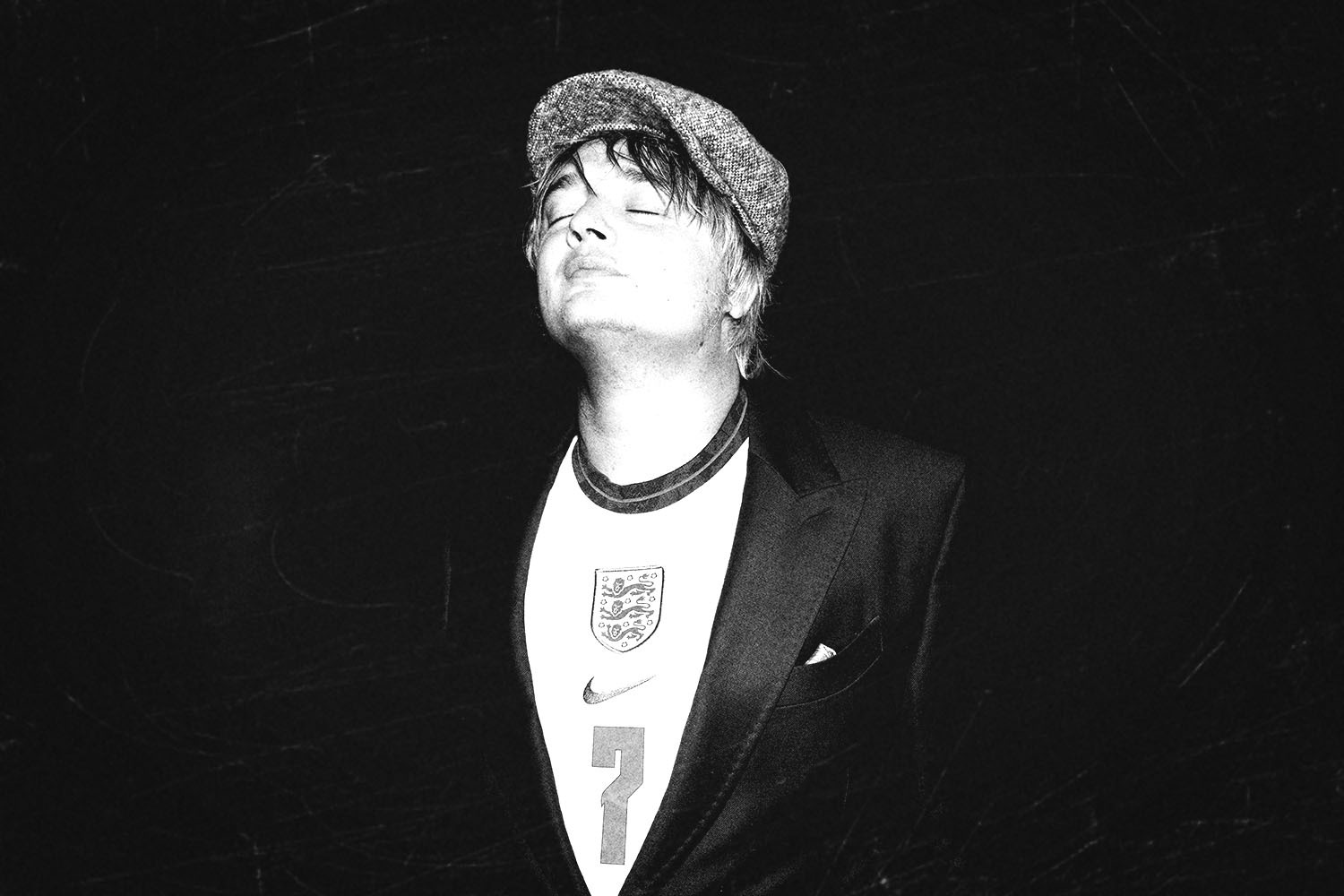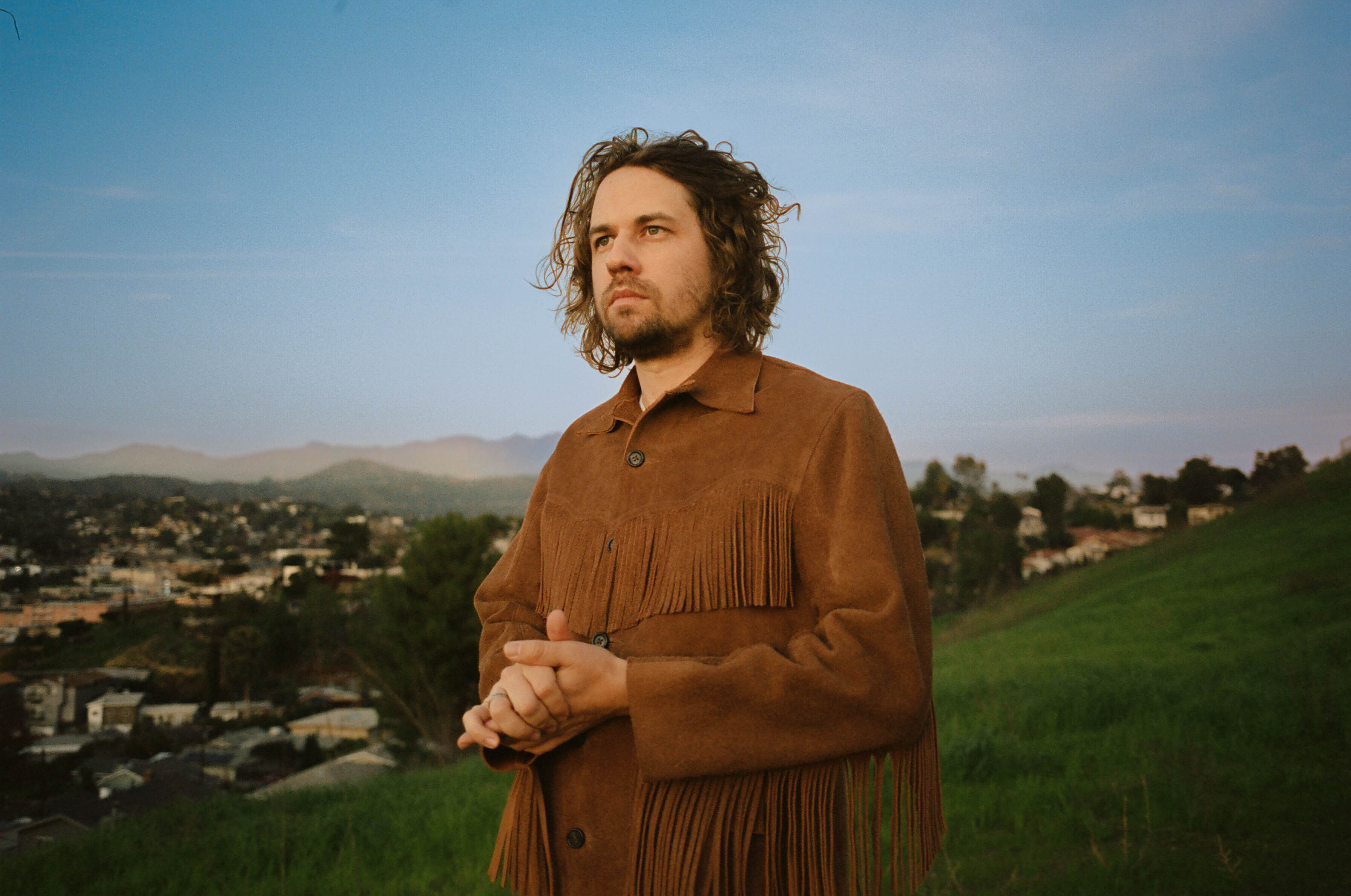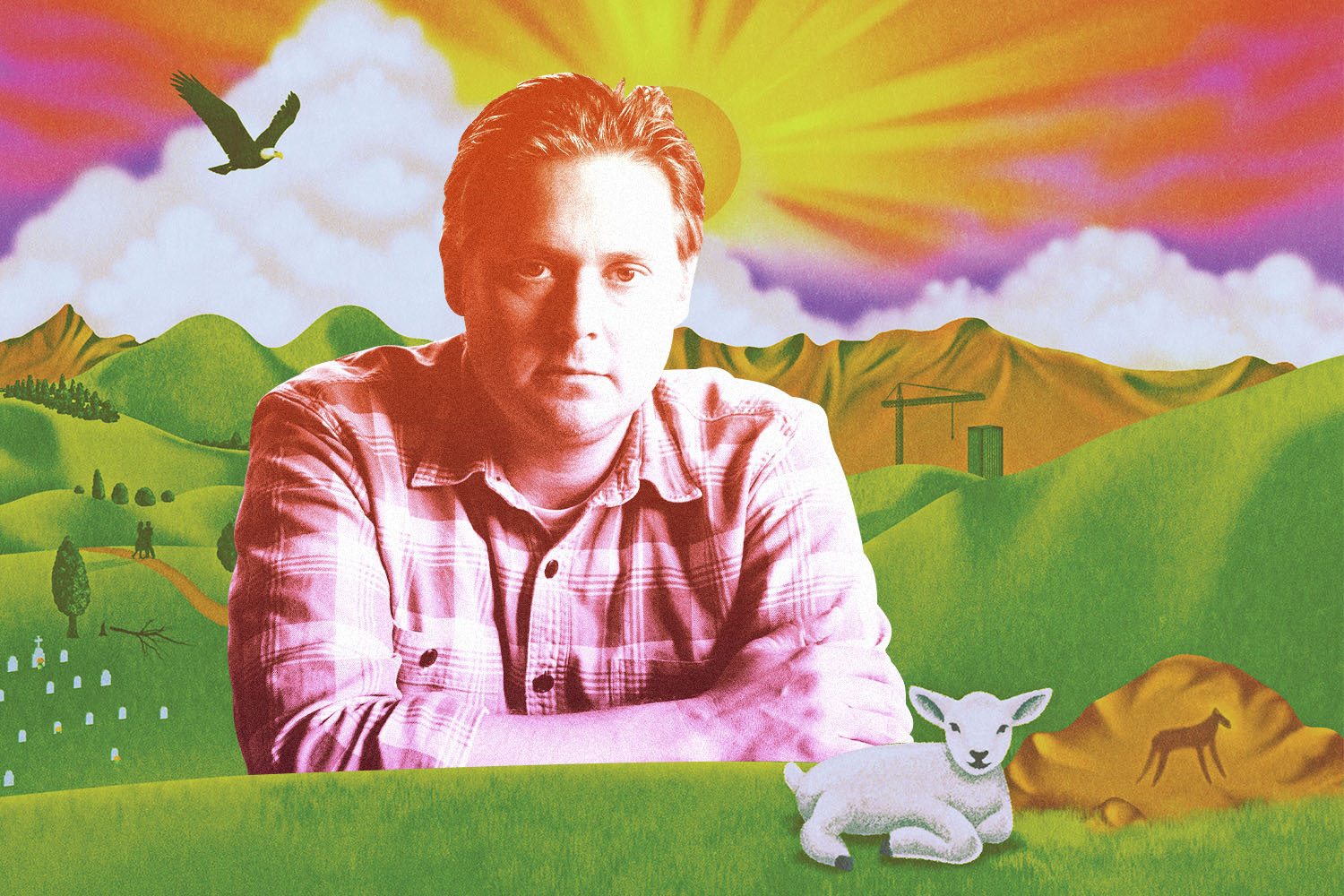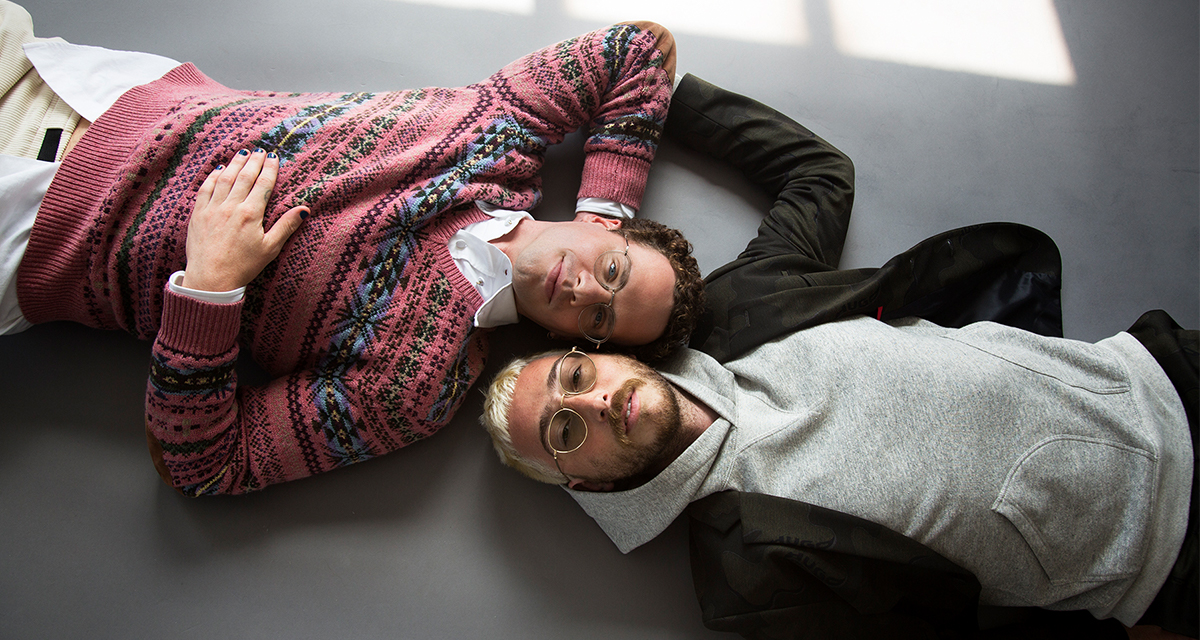
“Y’all look like rock stars.”
We’ve barely been chatting over beers at The Northman on Chicago’s Riverwalk for five minutes when a member of the city’s famous Bucket Boys spots Whitney’s Julien Ehrlich and Max Kakacek and senses they’re kindred spirits. He’s soliciting donations to raise money for his street performer permit — “How would you feel if you had to pay $150 to do what you love?” he asks — and while he may not know specifically that he’s talking to one of the city’s most beloved indie rock bands, he’s correctly identified them as fellow musicians sympathetic to all the hoops one must jump through to play. And he’s convinced they look the part.
“I know y’all are rock stars,” he calls back over his shoulder as he walks away after Ehrlich and Kakacek each give to his cause. “I know you listen to the music. Y’all look cool as hell. I want to be in your group.”
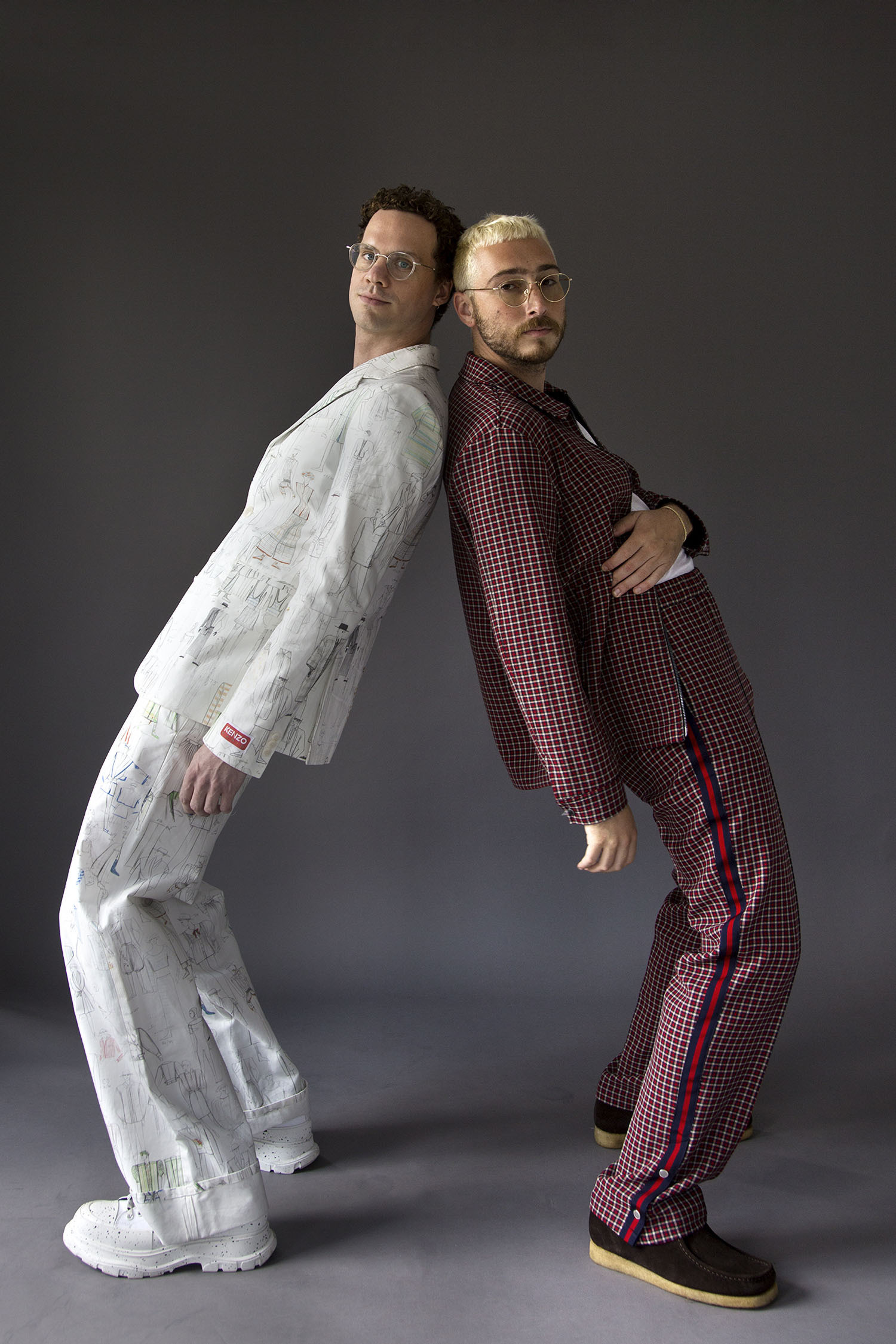
He’s right, of course — they are rock stars, and they do look cool as hell — but we’re actually gathered here on this unseasonably hot late-summer day to discuss what’s arguably their biggest sonic departure yet, their new album SPARK (out Sept. 16 via Secretly Canadian). At its core, it’s a pop record, full of warm, catchy melodies and dreamy grooves. It’s a different direction, no doubt, than their folk-tinged Light Upon the Lake (2016) and Forever Turned Around (2019), or the fuzzed-out glam of their previous group, Smith Westerns. Those who are used to hearing Ehrlich’s falsetto — which earned the group an early endorsement from none other than Elton John, who called Light Upon the Lake one of his favorite records of 2016 — set against campfire-friendly soundscapes may be mildly surprised to hear it accompanied by more polished, radio-friendly hooks this time around. But it’s not entirely out of left field, either, and anyone who’s familiar with the way Whitney has always embraced horns and keys should realize this “new” sound has been percolating for quite some time.
“I think it’s something that we’ve always been pursuing, honestly,” Ehrlich says. “We’ve kind of thought that we were doing that the whole time, but we did choose to take all the restrictions that we had on our aesthetic and the tools that we were using and we just decided to open up the world to anything that a song might be calling for. So that’s why it’s a much more multidimensional, 3D record.”
“I just truly do think it’s just the best thing that we’ve made. I’m excited for 20 years from now or 50 years from now when some kid is like, ‘Whoa, bro. They really put something elaborate and really thoughtful out.'”
– Julien Ehrlich
The fact that they were able to broaden their horizons so effectively on SPARK is impressive when you consider the period of confinement during which much of it was written. The pair found themselves stuck in Portland during the COVID-19 pandemic, locked down thousands of miles from home in the rental they shared with nothing to do but work on new material.
“We originally all decided to get a house out there when we were on tour, touring Forever Turned Around. So that must have been in February,” Ehrlich explains. “We had all these talks and relationships were kind of ending, both his and mine were in really weird spaces. Mine was coming to a more finite end, but we all came to this conclusion, and then I really followed through with it and went out and found a house that would be great. And because I just really wanted to give my former partner space, it just made sense to leave the city for a year so that we didn’t have to date other people in front of each other, which is always a painful thing. I thought that avoiding that pain would be a good idea. And then obviously we got trapped. Max flew out two days before the pandemic.”
Fortunately, Ehrlich and Kakacek are no strangers to living and working together. They met roughly a decade ago on tour when Kakacek asked Ehrlich, then a member of the Portland-based psych-rock outfit Unknown Mortal Orchestra, to join him in Smith Westerns. Less than a year later, Smith Westerns split up, but the guitarist and drummer remained inseparable. Their years of sleeping on couches or piling into buses on tour obviously prepared them for long stretches of time together in close quarters, and the best friends/creative partners currently share an apartment in Chicago’s Ukrainian Village. (In fact, the two are so far from being sick of each other that they didn’t even listen to any music on their three-day drive back to Chicago from Portland, instead spending the entirety of the cross-country journey just talking to each other.) But, as we all are now painfully aware, life in quarantine is something else entirely. And for Whitney, it was a chance to reinvent themselves.
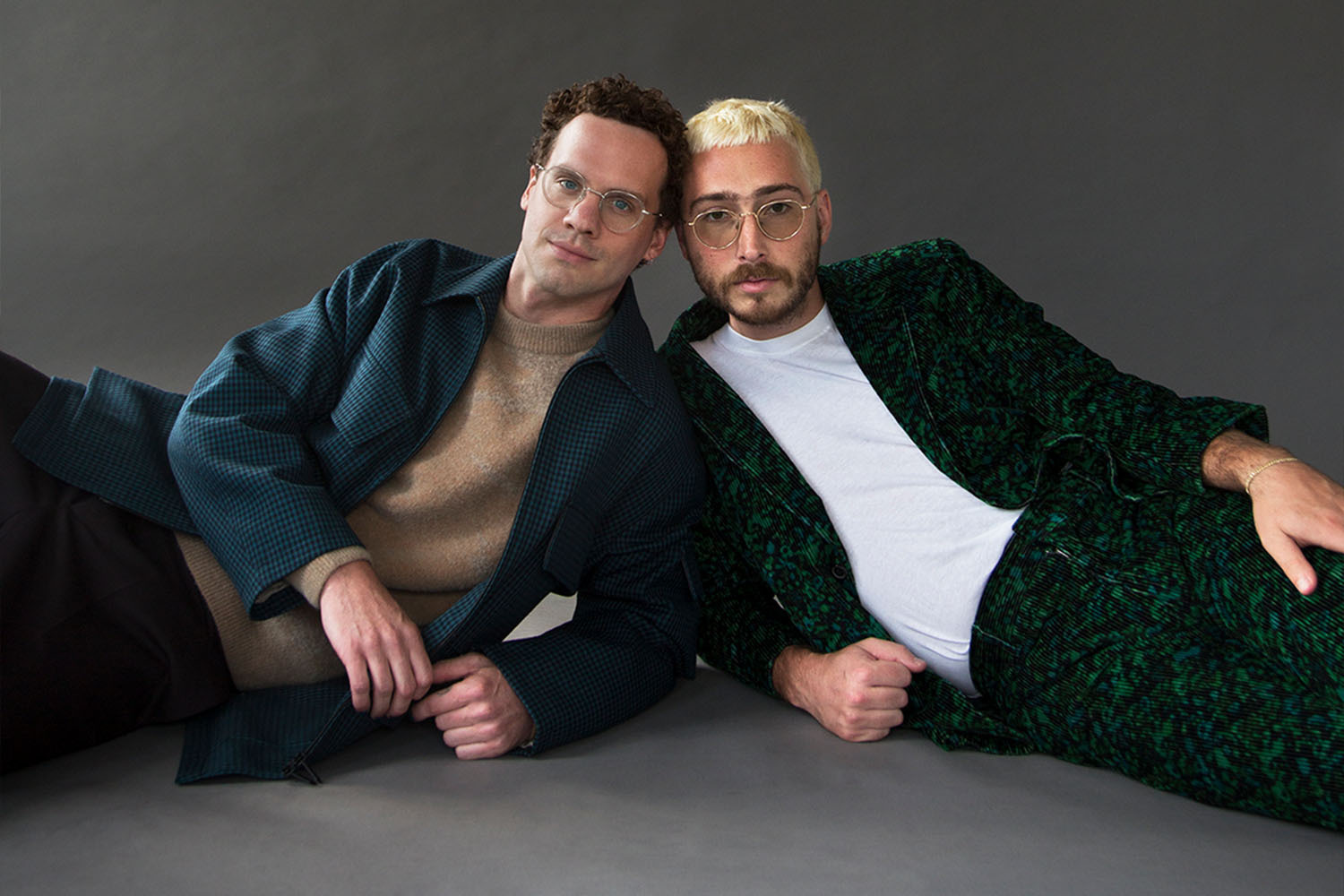
“We were so ready to be back to square one in the sense of having literally nothing to do but write a record over the course of a year,” Ehrlich says. “And it felt really scary and anxious and intense and depressing at times, but also really comforting to be able to create that way with no distractions and nothing to stop the momentum.”
“Even though we would’ve loved to be on tour, it was a nice head space to be in,” he continues. “There’s something about being on tour and playing the songs over and over again that puts you into a habitual nature of the way you play your instrument or what you gravitate towards. And sometimes you come back from tour and everything you write sounds like something you’ve been playing or you just have to take a break and kind of unlearn those habits and [the pandemic] just gave us this space of not touring ourselves into the ground creatively.”
That’s not to say, of course, that SPARK wasn’t born out of grief and loss. In addition to their breakups and the pandemic, Ehrlich and Kakacek had to cope with the death of Kakacek’s grandfather as well as the passing of their mentor, Girls’ JR White, and suffocating smoke from nearby wildfires during their time in Portland. And yet despite all the tragedy that surrounded it, SPARK is ultimately an optimistic record — one that never shies away from the bad times but recognizes that they’re never forever. As Ehrlich sings on “BACK THEN,” “We found a way to live/While the world was burning/Real life was caving in/Good days were bound to end/Never thought back then/We could learn to love again.”
“It’s a pretty accurate reflection of who we are,” he says. “We obviously get depressed and we are aware consciously, but I think ultimately we’re always trying to pull ourselves away from getting fully lost in depressive episodes and getting lost in anxiety and letting it totally overcome or overtake us as individuals. But we also have the conversation where it’s like, ‘Alright, we could put this lyric here that has a far darker message and doesn’t really allow any hope,’ but we ultimately always land on something that feels a little bit like there’s something to grasp, some sort of hope to grasp because that’s what we actually resonate with.”
“And also, I think just musically speaking, lyrics completely aside for a second, if you consider vocal melody part of the music as well, we’re just, I think, always looking for something really catchy,” Kakacek adds. “Which in our heads usually is based in a major key. The music itself usually is somewhat optimistic-sounding.”
Perhaps it’s that ability to roll with the punches and adapt that leads him to suggest we ditch the boat ride we had planned on this afternoon and head up to the top of the John Hancock Center instead. It’s 90 degrees, and though, as any Chicagoan will delight in telling you, it’s always cooler by the lake, the idea of spending another hour and a half in direct sunlight still feels less than ideal. Besides, the Hancock Center has an air-conditioned bar and shrimp cocktail.
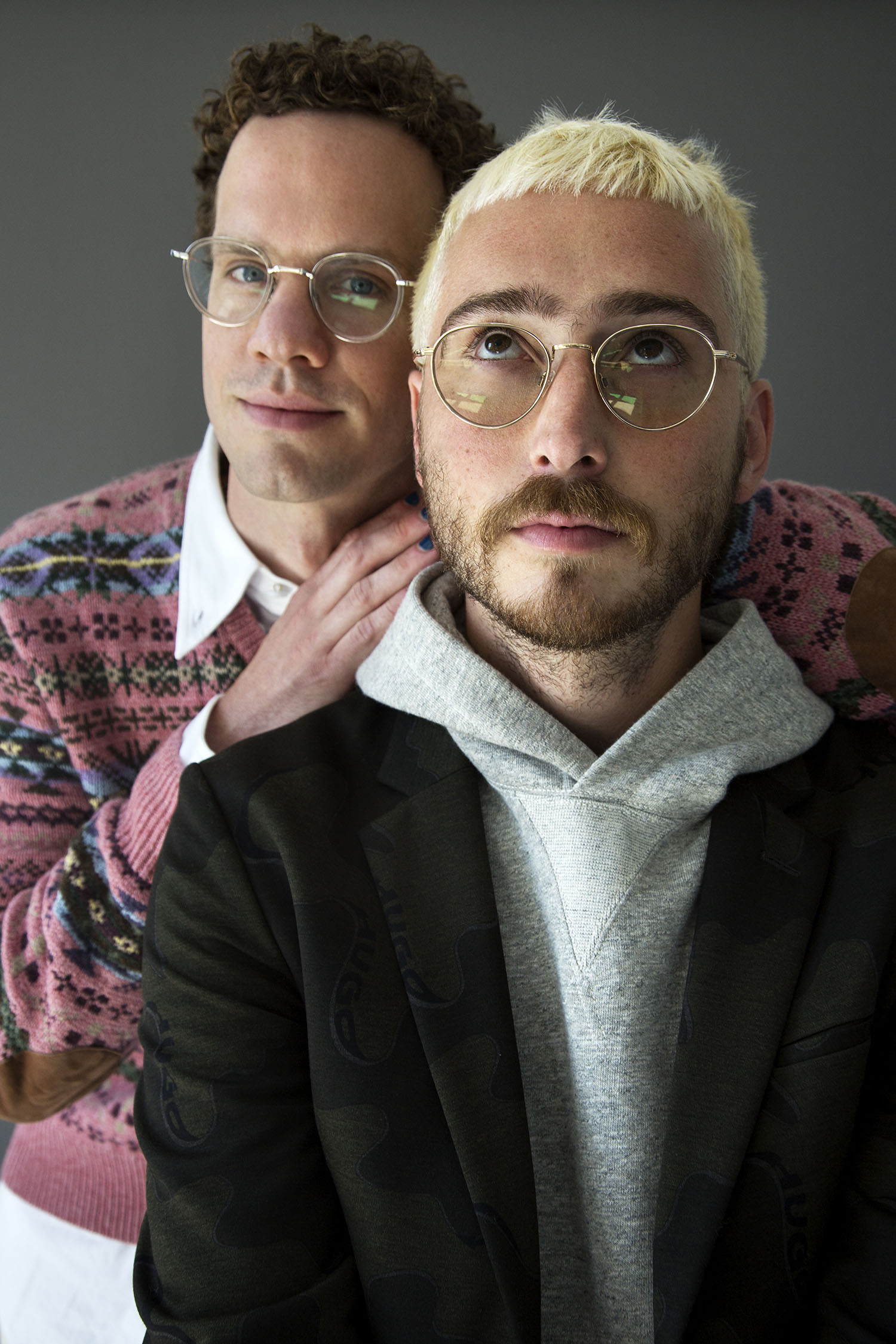
The Hancock Center (which was technically renamed “875 North Michigan Avenue” in 2018 but remains the Hancock Center to a city of locals who still call Willis Tower the Sears Tower and refer to the Macy’s on State Street as Marshall Field’s despite it changing ownership 16 years ago) is nowhere near the tallest building in America. Hell, it’s only the fifth-tallest in Chicago. And yet, the view from the top is remarkable, stretching as far as 60 miles away and extending into four different states.
“This is Earth, dawg,” Ehrlich says with a laugh as we settle into our table by the window at the Signature Lounge, 96 floors up. “You’re really looking at Earth.”
That’s true, of course, but it’s hard not to feel a swell of hometown pride when you’re gazing out at it from roughly 1,100 feet above. Chicago has always maintained a strong sense of ownership over the artists it produces — in 2019, the city celebrated Ehrlich and Kakacek by officially declaring Aug. 30 to be “Whitney Day” — and in this case, the feeling is mutual. Portland was a surreal sanctuary during an incredibly trying time, but Chicago will always be home.
“I think just musically speaking, lyrics completely aside for a second…we’re just, I think, always looking for something really catchy.”
– Max Kakacek
“The only place I’ve lived other than Chicago is Portland,” Kakacek says. “So one thing I wish, I wish that I’d been able to live in another city and experience what that music community was like in a more normal way, not during a pandemic when everything was closed down. But I’m sure that it would just reiterate something I already know, which is that Chicago is kind of the best, in my opinion. Three members of the band all went to a Chicago public high school. I’m the fourth. And pretty much everyone around in bands in Chicago, we see a lot of people that we knew from high school, watch them kind of grow up into musicians. And then now it’s like we’re kind of like the people that we were looking up to.”
That’s not something they take for granted. They go out of their way to pay it forward, allowing younger local bands like Lifeguard to open for them. And aside from the “REAL LOVE” video, they’ve handled all the visuals for this album themselves — something that’s both a way for them to maintain control of their creative vision and savor every moment. (Even if that moment involves their bandmate Ziyad Asrar being swarmed by bugs while shooting the night-swimming scenes in the “TWIRL” video: “He was like the stepmom from The Parent Trap,” Ehrlich quips.)
“We were talking about just having just a little digi camera around that’s not your phone, especially on tour, that’s just kind of free rein to anyone that wants to grab it, just capture whatever,” Kakacek explains. “To me, storing ideas on a camera that you can’t immediately post, that can maybe be used for something later that, to me, is specifically more meaningful, would be nice. I feel like if you take out your phone, you’re just like, ‘Oh. You know what? I’m going to go put it on the internet.’ If it’s on a separate device that uses some archaic loading system to get it on a computer, you’re probably going to use it for something kind of cool.”
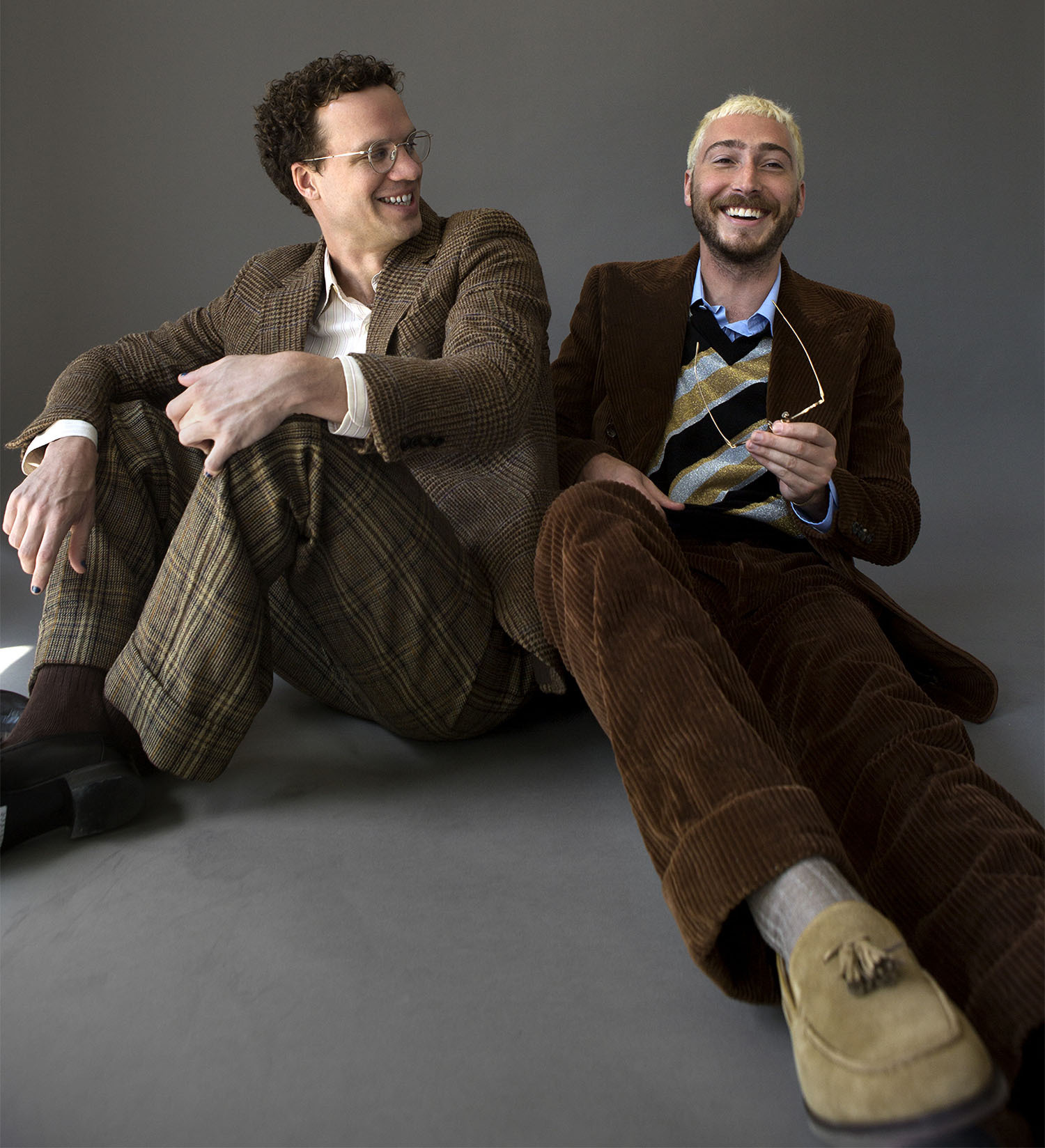
Naturally, that doesn’t stop any of us from whipping out our phones and snapping some quick pics of the view (presumably to put on the internet) before it’s time for us to hop back in the elevator and go hurtling back down to earth so quickly that our ears pop. When you’re so high up, the world feels incredibly vast and tiny at the same time. It’s a weird, contradictory sensation; some people find it thrilling, and others are freaked out by it. But it feels like a no-brainer that a band like Whitney, who have embraced their upward trajectory while still remaining devoted to the tight-knit local scene they came up in, would wind up here when talking about SPARK.
“I just truly do think it’s just the best thing that we’ve made, which is lame to say,” Ehrlich says. “That probably doesn’t read very well. But yeah. I just think it’s more of an adventure to listen to, yet still comforting in the ways that I think people have grown attached to…I’m excited for 20 years from now or 50 years from now when some kid is like, ‘Whoa, bro. They really put something elaborate and really thoughtful out.’ I just want people to connect to it forever.”
After all, that’s what we do with our greatest attractions — be they the massive buildings or the rock stars perched inside them, marveling at everything that lies ahead.
Photography: Karl Simone @karl_simone
Grooming: Will Sullivan @willssassy
Studio: Love Studios @lovestudiosnyc
Fashion: Kevin Breen @kpbreen
Thanks for reading InsideHook.
Sign up for our daily newsletter to get more stories just like this.
